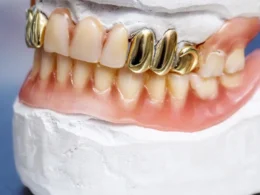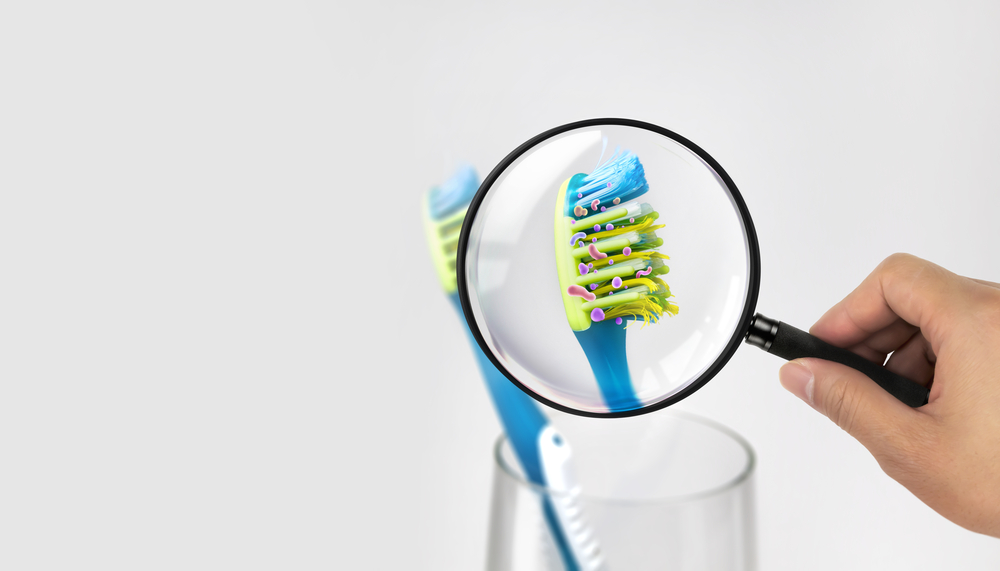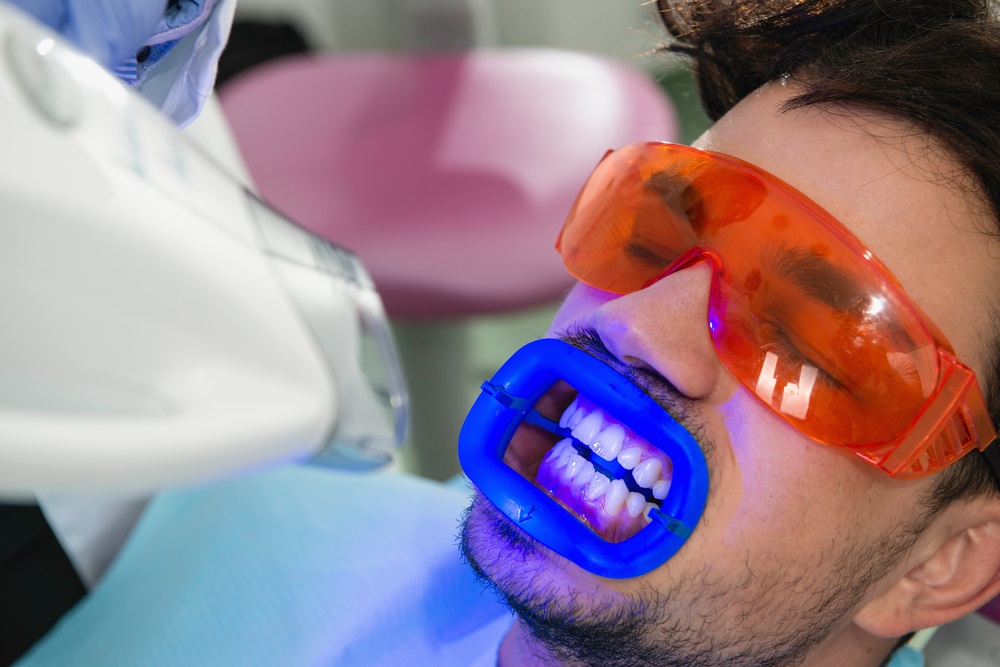- Bad breath is typically caused by poor oral hygiene and lifestyle choices.
- It may also be a symptom of a more serious underlying medical condition.
- If halitosis is a consistent problem in your life, you should consult a doctor.
While coffee breath, garlic breath or morning breath can be offensive, they’re not chronic problems. Chronic halitosis is a more serious, long-lasting condition that can be traced back to many different causes — from simple problems like poor oral hygiene to more serious issues like gastrointestinal or metabolic disorders.
Once you have this persistent problem, it can be difficult to resolve. Fortunately, there are several highly effective treatments and solutions to bad breath.
Oral causes of halitosis
The vast majority of cases of halitosis — 85-90% — stem from the mouth or oral cavity. Because the mouth is a complex biological environment, numerous imbalances can result in bad breath.
Poor oral hygiene
Neglecting oral care or improper brushing and flossing can lead to halitosis. This is because the mouth harbors numerous kinds of bacteria, many of which cause bad breath. These bacteria feed on bits of food left between your teeth after meals. As the food rots and are broken down by these bacteria, a foul smell is discharged.
Note, the tongue — especially the back of the tongue — is another place that these bacteria can thrive if neglected from your cleaning regimen.
Dry mouth
“Chronic dry mouth — a medical condition called ‘xerostomia’ — is a leading cause of bad breath,” explains Dr. Ryan Clancy, a dentist in the Boston area. “Dry mouth facilitates bacterial growth, which can lead to bad breath,” he explains.
Saliva is crucial for the health of your mouth. It helps to rinse away plaque and food particles and keep your gums healthy. A lack of saliva leads to dry mouth.
Some of the most common causes for dry mouth are:
- Overconsumption of caffeine
- Smoking
- Numerous medications, including 15 of the 20 most prescribed drugs in the United States
- Breathing through your mouth
- Drinking alcohol
- Certain medical conditions, including diabetes
- Dehydration
The most important preventative measure for halitosis due to dry mouth is to make sure your body is producing enough saliva by moderating your consumption of alcohol, caffeine and cigarettes as well as drinking lots of water.
Gum disease, tooth decay, and abscesses
Gum disease can also result in halitosis. Gingivitis or inflammation of the gums often precedes periodontitis, a more serious disease that can lead to infection as well as gum and tooth damage. Periodontitis can result in ‘pockets’ or spaces forming in the gums around your teeth where food can get stuck, producing bad odors as it decays. Most of the bacteria that cause halitosis also cause periodontitis.
An abscess in your mouth or a decaying tooth can also host countless bacteria that produce foul smells and halitosis.
Non-oral causes
There are also several non-oral causes of halitosis, some of which require medical attention. In these cases, halitosis is merely one symptom of these conditions. Thus, it’s important to treat the underlying cause rather than just mask the symptoms.
Respiratory tract infections
Around 10% of halitosis cases can be traced to disorders of the ear, nose and throat. The most significant of these is tonsillitis — an infection of the tonsils. Symptoms of respiratory tract infections like sinusitis and post-nasal drip can also cause unpleasant smells.
Digestive tract illnesses
Digestive problems may also cause halitosis — albeit, less commonly. One notable cause is gastroesophageal reflux disease (GERD). “If you frequently have heartburn and other digestive symptoms in concert with bad breath, your doctor can test you for a condition like GERD,” explains Dr. Clancy.
Other causes
There can be many other causes, including:
- Diabetes
- Menstruation
- Trimethylaminuria, which can lead to a buildup of the protein trimethylamine and produce a rotten smell
- Hepatic or renal failure
- Eating disorders
Getting to the root of the problem
If halitosis is a consistent problem in your life, you should seek medical advice.
To determine the source of your halitosis, a doctor will smell the air coming from your mouth and from your nose. If the halitosis emanates only from your mouth, it’s likely an oral issue. If it comes only from your nose, it’s an ear-nose-throat issue. If it comes from both, it could be a sign of a more serious problem like a digestive or metabolic condition.
It’s also important to note that many people who believe they have chronic halitosis actually don’t — they suffer instead from a condition called ‘halitophobia’ or a fear of having bad breath.
Treatments for halitosis
Numerous treatments exist for halitosis, ranging from a proper oral hygiene plan and medical options to natural remedies that can be concocted at home.
Proper oral hygiene
Since poor oral hygiene is the most common cause of halitosis, good oral hygiene is the simplest solution, so establish a proper oral hygiene regime that consists of brushing and flossing. Many people skip flossing even if they brush their teeth regularly.
Rebecca Lee, a Registered Nurse from New York City, has this admonishment: “When food particles that have been sitting in between the teeth start to rot, bad breath can occur. It doesn’t matter how well you brush — you have to floss every single day.”
On the subject of brushing, Lee reminds us that “Your tongue harbors hundreds of odor-causing bacteria. Make sure you rigorously brush the yellow or white coating off the top of your tongue. This nasty film is usually caused by inflammation and infection.” Use a tongue scraper or your toothbrush to clean the tongue.
Of course, brushing and flossing should be supplemented with regular visits to your dentists for professional cleanings. These cleanings help prevent the buildup of plaque on your teeth, where bacteria that can cause periodontitis tend to grow.
The myth of the mouthwash
Mouthwash is a staple product in many households, and is widely used to reduce bad breath. However, Dr. Clancy cautions patients about using mouthwash. “Many patients with bad breath turn to mouthwash, but it pays to be selective. The ideal mouthwash for halitosis is both antibacterial and alcohol-free.”
Why is this? “The alcohol content in mouthwashes can actually cause bad breath by drying out the mouth and providing a favorable environment for bacteria to grow,” he explains. “Patients should recognize mouthwash for what it generally is: a quick fix, with limited clinical benefit for a chronic condition like halitosis.”
Treatments for dry mouth
A simple, cheap solution to mild xerostomia can be to chew sugar-free gum as this action can induce the production of saliva. For more severe cases, a doctor may prescribe a sialogogue, a drug that induces the production of saliva. However, these drugs may have strong side effects or contraindications so use them cautiously.
Your doctor may also recommend a sialogogue spray or other oral sprays — for example, an oxygenated glycerol triester spray — especially for drug-induced xerostomia.
Periodontitis
Periodontitis may require more serious medical treatment. Untreated periodontitis can lead to tooth loss and permanent gum damage, and should be treated as soon as possible. “Underdiagnosed and undertreated periodontal disease can lead to halitosis,” Dr. Clancy confirms. “Many surgical options, including dental laser therapy, can help alleviate these conditions.”
The first step in treatment for periodontitis is usually a deep cleaning. You’ll get other medications to help with the healing, including antibiotics or a non-alcoholic mouthwash. In the event that some periodontitis still persists, surgery may be necessary.
Tonsillitis
Laser surgery has proven to be effective in reducing halitosis from chronic tonsillitis. This procedure requires a maximum of three visits. No adverse effects have been reported as yet.
Natural remedies for bad breath
Lee notes that several inexpensive and relatively simple home remedies can be effective in the prevention of halitosis:
- Apple cider vinegar can help kill harmful bacteria and break down plaque as well as keep digestive problems under control.
- Baking soda can also help remove bacteria and can aid in digestion. Due to its corrosive properties, it should not be left on teeth for an extended period of time.
- Cinnamon not only tastes good but also has antibacterial properties that can help resolve halitosis.
- Citrus fruits like lemons can help control bacteria levels due to their acidity.
- Coconut oil is useful in an ancient practice called oil pulling, which involves swishing oil around the mouth for 20 minutes. Oil pulling helps to remove plaque, food and bacteria buildup around teeth.
- Fennel seeds have antimicrobial properties and can also help with digestion.
- Chewing herbs like peppermint, tea tree leaves or thyme can help reduce bacterial levels and stimulate the production of saliva.
- Eating more fresh fruits and vegetables acts to naturally scrub your teeth and prevent plaque buildup.
Beating bad breath
Only in the last two decades has halitosis begun to garner strong attention from the medical community. As mentioned, it can be either be a symptom of a simple or complex problem, with corresponding cures that can be equally simple or complex.
If chronic halitosis is a concern for you, speak to a doctor or dentist to help you determine the underlying cause and tackle the problem at its root.









